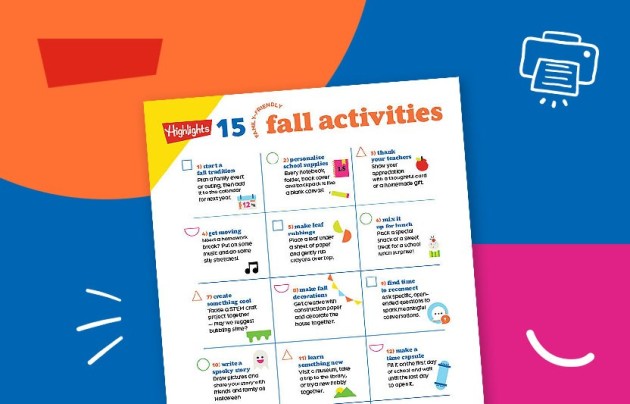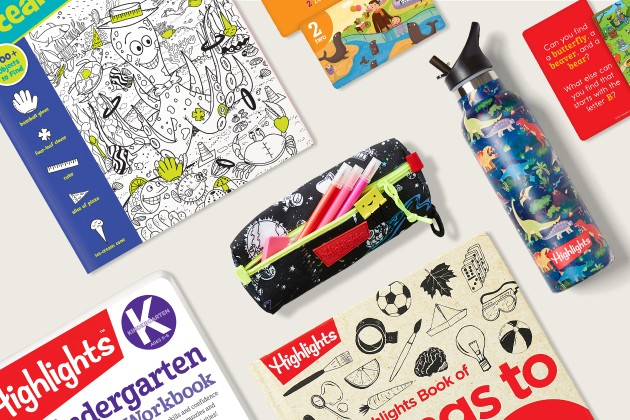How To Calm an Overexcited Toddler

Stop the antics before they start—or stop them in their tracks.
Much that is mundane to adults is new and exciting for toddlers. No wonder it’s so easy for them to slip over the edge into overexcited territory! Here’s how, when and why to step in. You’ll be glad you did.
What Overexcitement Looks Like
Every child responds a little differently to stress and change. Your little one might react by:
- Running and jumping (at times and places where it’s not appropriate)
- Shouting or making loud noises
- Being irritable and oppositional
- Being impulsive or aggressive
- Crying or throwing a tantrum
- Being unable to sleep or refusing to sleep
- Refusing to eat
- Shutting down and avoiding interactions with others
In other words, typical toddler stuff—but cranked up a notch.
What Winds Kids Up
Toddlers can melt down over the slightest snag (ever make the mistake of handing your child a cup that’s the “wrong” color?). But certain conditions can set off even the most go-with-the-flow kind of kid. Sometimes you must find out the hard way what situations are difficult for your child to handle, but common triggers include:
Changes in diet
Although it’s not necessarily true that sugar causes hyperactivity, eating a lot of sugar or carbs can cause a blood-sugar spike…and then a crash. Both are unpleasant states for your child to experience, and your child may act out. Your child may also react unpredictably to unfamiliar foods. A nutritious diet that includes healthy amounts of fiber and protein may help keep things on a more even keel.
Lack of sleep
If your child misses a nap or stays up past their usual bedtime, they can become overtired and have a hard time winding down and falling asleep (just when they need those z’s the most).
Disrupted routines
Young children thrive on the predictable. They feel more secure and comfortable when they know what’s happening and in what order. Disruptions can cause stress, which leads to stressed-out behavior.
Overstimulation
Your little one’s brain is growing quickly, and your child is processing and analyzing everything they see, hear, touch, taste and smell. When your child is bombarded with a lot of new stimuli at once (such as at a party with unfamiliar people, sounds and foods), your child may tire more quickly or become overexcited.
What to Do: Prevention
Heading off overexcitement before it starts is often the best strategy for parents. Setting up and sticking to a daily routine is a big help; consistency makes it easier for kids to behave because they know—almost subconsciously—what’s expected of them.
Incorporate physical play during the day to get those little muscles moving—and help your toddler sleep more soundly. It can also help to mix in quiet, restful activities (think reading books, coloring with crayons, cuddling with soft toys) so your child can practice being calm and relaxed.
Anticipate tough situations, like the ones above, and avoid them when you can. Skip the before-dinner errands if you know your child missed a nap today, for example. When you do go to a party or some other fun event, try to schedule it so that your child gets a good nap and has a full belly beforehand. Or bring some healthy snacks with you. If you know it will be a late night, pack pajamas and a toothbrush. Run through an abbreviated bedtime routine before you head for home, in case your child nods off in the car.
What to Do: Treatment
Of course, prevention is ideal, but it’s not always possible! When you’re faced with an overexcited, overstimulated toddler, try these tips for turning things around:
Remain calm.
Easier said than done, of course, but if you’re stressed about the havoc your tiny tornado is causing, it’ll be that much harder to slow them down.
Meet your child’s needs.
Is your child in need of attention? Does your toddler need a bite to eat, a drink of water, a nap? Feeling hungry, thirsty or sleepy could cause your child discomfort. Stopping for a snack or a drink of water could distract your toddler from overzealous activity. (If it’s a nap your child needs, see “soothing steps” below.)
Leave the premises.
Sometimes you just must pick up your toddler and walk away. At home, head for the bedroom, or anywhere that’s quiet and calm. At a social event, see if you can take your child outside or into an out-of-the-way room. (You may want to ask your hosts when you arrive: “If I need to excuse myself with my kiddo, where would you like us to go?” Knowing you have an exit plan can be comforting.)
Take soothing steps.
Once you’re out of the stimulating environment, use calming techniques that you know work for your child: a backrub, a walk in the stroller, a low-key story or song and soothing words and snuggles.









